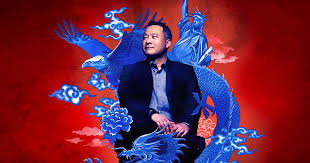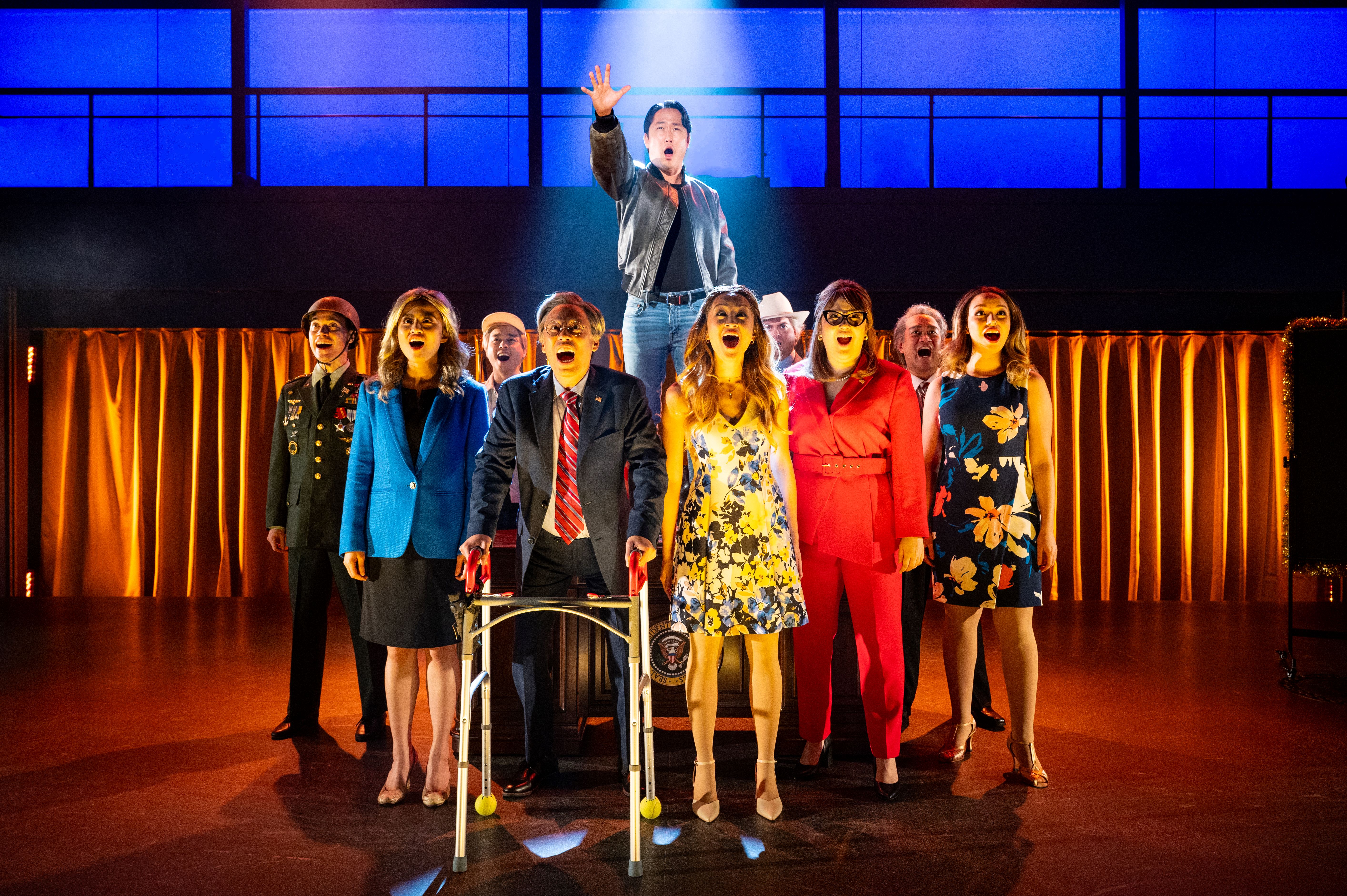Soft Power on Stage

by Sherry L. Mueller
It never occurred to me to write a blog urging readers to attend a theater performance. However, Soft Power at Signature Theatre is a “must see" for those of us captivated by this concept that Joseph Nye, Jr., first developed in his 1990 book Bound to Lead: The Changing Nature of American Power.
Most practitioners and scholars of public diplomacy, including PDCA members, are thoroughly familiar with the term through Professor Nye’s subsequent books and articles. My favorite Nye book, which I still assign to my students, is Soft Power – The Means to Success in World Politics. In it the author beautifully elaborated and illustrated that concept that has worked its way into our vocabulary – and into our cultural life.
 As a professor who teaches cultural diplomacy, I felt compelled to attend this new musical Soft Power at Signature Theatre in Arlington, Va. In the playbill the Directors, Matthew Cardiner and Maggie Boland, accurately reflect Nye’s definition of soft power as the political strategy of using cultural influence rather than force or coercion to achieve diplomatic results.
As a professor who teaches cultural diplomacy, I felt compelled to attend this new musical Soft Power at Signature Theatre in Arlington, Va. In the playbill the Directors, Matthew Cardiner and Maggie Boland, accurately reflect Nye’s definition of soft power as the political strategy of using cultural influence rather than force or coercion to achieve diplomatic results.
The show begins as a Chinese theater producer approaches a Chinese American playwright to create a new Broadway-style musical for Chinese and American audiences with a goal of increasing Chinese soft power. The Directors note that, “It is an East-meets-West story which asks us to examine what we love and question about America.” As I watched this riveting show, I was reminded of the Edward R. Murrow phrase “warts and all” because its portrayal of our country’s flaws is disturbingly on target. For example, there are vivid depictions of gun violence reminding us of how we must look to the rest of the world when many of our headline-worthy actions are so diametrically opposed to our ideals.
 It would be helpful to review the plot of the Rogers and Hammerstein Broadway musical The King and I that premiered in 1951 before attending because Soft Power is characterized as The King and I in reverse. Some of the choreography is reminiscent of the most memorable scenes featuring Anna and the King of Siam.
It would be helpful to review the plot of the Rogers and Hammerstein Broadway musical The King and I that premiered in 1951 before attending because Soft Power is characterized as The King and I in reverse. Some of the choreography is reminiscent of the most memorable scenes featuring Anna and the King of Siam.
Even though Soft Power is an 85-minute production without an intermission, the play successfully grapples with concepts such as the importance of “face” in Chinese culture and our own sometimes costly insensitivity to important cultural constructs in other countries. This remarkable musical, with its extraordinarily talented and energetic cast, is entertaining, thought-provoking, and hopeful. I encourage you to see it before its run ends on September 15.
(Photos used with permission of Signature Theatre)
It never occurred to me to write a blog urging readers to attend a theater performance. However, Soft Power at Signature Theatre is a “must see" for those of us captivated by this concept that Joseph Nye, Jr., first developed in his 1990 book Bound to Lead: The Changing Nature of American Power.
Most practitioners and scholars of public diplomacy, including PDCA members, are thoroughly familiar with the term through Professor Nye’s subsequent books and articles. My favorite Nye book, which I still assign to my students, is Soft Power – The Means to Success in World Politics. In it the author beautifully elaborated and illustrated that concept that has worked its way into our vocabulary – and into our cultural life.
 As a professor who teaches cultural diplomacy, I felt compelled to attend this new musical Soft Power at Signature Theatre in Arlington, Va. In the playbill the Directors, Matthew Cardiner and Maggie Boland, accurately reflect Nye’s definition of soft power as the political strategy of using cultural influence rather than force or coercion to achieve diplomatic results.
As a professor who teaches cultural diplomacy, I felt compelled to attend this new musical Soft Power at Signature Theatre in Arlington, Va. In the playbill the Directors, Matthew Cardiner and Maggie Boland, accurately reflect Nye’s definition of soft power as the political strategy of using cultural influence rather than force or coercion to achieve diplomatic results.The show begins as a Chinese theater producer approaches a Chinese American playwright to create a new Broadway-style musical for Chinese and American audiences with a goal of increasing Chinese soft power. The Directors note that, “It is an East-meets-West story which asks us to examine what we love and question about America.” As I watched this riveting show, I was reminded of the Edward R. Murrow phrase “warts and all” because its portrayal of our country’s flaws is disturbingly on target. For example, there are vivid depictions of gun violence reminding us of how we must look to the rest of the world when many of our headline-worthy actions are so diametrically opposed to our ideals.
 It would be helpful to review the plot of the Rogers and Hammerstein Broadway musical The King and I that premiered in 1951 before attending because Soft Power is characterized as The King and I in reverse. Some of the choreography is reminiscent of the most memorable scenes featuring Anna and the King of Siam.
It would be helpful to review the plot of the Rogers and Hammerstein Broadway musical The King and I that premiered in 1951 before attending because Soft Power is characterized as The King and I in reverse. Some of the choreography is reminiscent of the most memorable scenes featuring Anna and the King of Siam.Even though Soft Power is an 85-minute production without an intermission, the play successfully grapples with concepts such as the importance of “face” in Chinese culture and our own sometimes costly insensitivity to important cultural constructs in other countries. This remarkable musical, with its extraordinarily talented and energetic cast, is entertaining, thought-provoking, and hopeful. I encourage you to see it before its run ends on September 15.
(Photos used with permission of Signature Theatre)